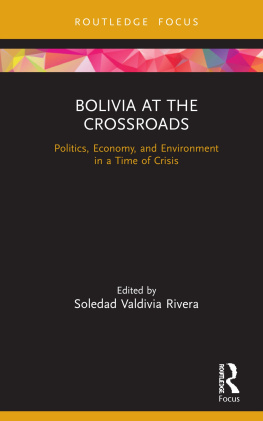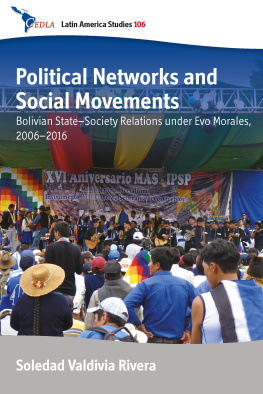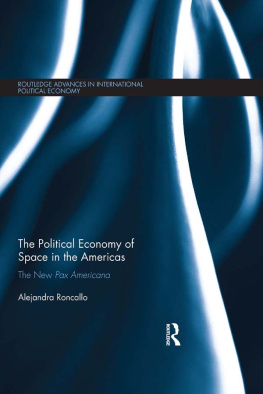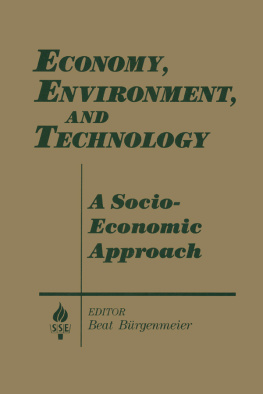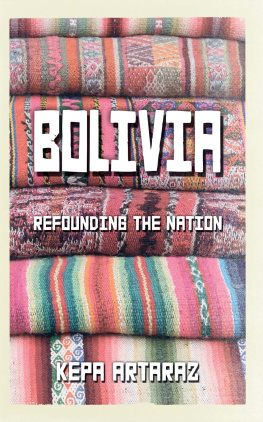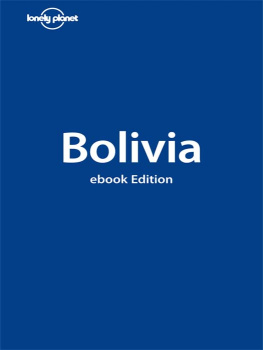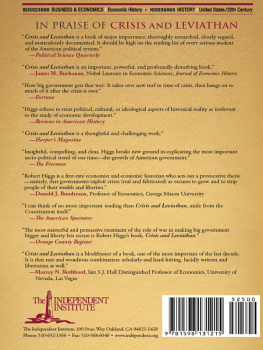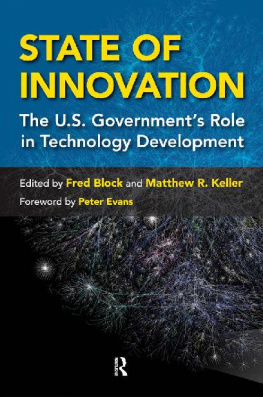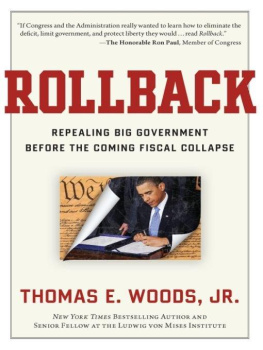Bolivia at the Crossroads
As Bolivia reels from the collapse of the government in November 2019, a wave of social protests, and now the impact of Covid-19, this book asks: where next for Bolivia?
After almost 14 years in power, the government of Bolivias first indigenous president collapsed in 2019 amidst widescale protest and allegations of electoral fraud. The contested transitional government that emerged was quickly struck by the impacts of the Covid-19 public health crisis. This book reflects on this critical moment in Bolivias development from the perspectives of politics, the economy, the judiciary and the environment. It asks what key issues emerged during Evo Moraless administration and what are the main challenges awaiting the next government in order to steer the country through a new and uncertain road ahead.
As the world considers what the ultimate legacy of Moraless left-wing social experiment will be, this book will be of great interest to researchers across the fields of Latin American studies, development, politics, and economics, as well as to professionals active in the promotion of development in the country and the region.
Soledad Valdivia Rivera is Assistant Professor, Institute of History, Leiden University, the Netherlands.
Routledge Studies in Latin American Development
The series features innovative and original research on Latin American development from scholars both within and outside of Latin America. It particularly promotes comparative and interdisciplinary research targeted at a global readership.
In terms of theory and method, rather than basing itself on any one orthodoxy, the series draws broadly on the tool kit of the social sciences in general, emphasizing comparison, the analysis of the structure and processes, and the application of qualitative and quantitative methods.
Industrial Development in Mexico
Policy Transformation from Below
Walid Tijerina
The Informal Sector in Ecuador
Artisans, Entrepreneurs, and Precarious Family Firms
Alan Middleton
Development Banks and Sustainability in the Andean Amazon
Edited by Rebecca Ray, Kevin P. Gallagher and Cynthia A. Sanborn
Bolivia at the Crossroads
Politics, Economy, and Environment in a Time of Crisis
Edited by Soledad Valdivia Rivera
Legal Experiments for Development in Latin America
Modernization, Revolution and Social Justice
Helena Alviar Garca
For more information about this series, please visit: https://www.routledge.com
First published 2021
by Routledge
2 Park Square, Milton Park, Abingdon, Oxon OX14 4RN
and by Routledge
605 Third Avenue, New York, NY 10158
Routledge is an imprint of the Taylor & Francis Group, an informa business
2021 selection and editorial matter, Soledad Valdivia Rivera; individual chapters, the contributors
The right of Soledad Valdivia Rivera to be identified as the author of the editorial material, and of the authors for their individual chapters, has been asserted in accordance with sections 77 and 78 of the Copyright, Designs and Patents Act 1988.
All rights reserved. No part of this book may be reprinted or reproduced or utilised in any form or by any electronic, mechanical, or other means, now known or hereafter invented, including photocopying and recording, or in any information storage or retrieval system, without permission in writing from the publishers.
Trademark notice: Product or corporate names may be trademarks or registered trademarks, and are used only for identification and explanation without intent to infringe.
British Library Cataloguing-in-Publication Data
A catalogue record for this book is available from the British Library
Library of Congress Cataloging-in-Publication Data
Names: Valdivia Rivera, Soledad, editor.
Title: Bolivia at the crossroads : politics, economy, and environment in a time of crisis / edited by Soledad Valdivia Rivera.
Other titles: Politics, economy, and environment in a time of crisis
Description: Abingdon, Oxon ; New York, NY : Routledge, 2021. |
Series: Routledge studies in Latin American development | Includes bibliographical references and index.
Identifiers: LCCN 2020052834 (print) | LCCN 2020052835 (ebook)
Subjects: LCSH: BoliviaPolitics and government21st century. | BoliviaEconomic policy. | Morales Ayma, Evo, 1959
Classification: LCC F3327 .B637 2021 (print) | LCC F3327 (ebook) | DDC 984.05/4dc23
LC record available at https://lccn.loc.gov/2020052834
LC ebook record available at https://lccn.loc.gov/2020052835
ISBN: 978-0-367-70772-9 (hbk)
ISBN: 978-1-003-14792-3 (ebk)
Typeset in Times New Roman
by codeMantra
Bolivia entered a period of crisis at the end of 2019, after elections held on 20 October that year failed and the first indigenous and longest sitting president of the country, Evo Morales, was forced to resign from office amidst social protest and military pressure. Morales ascendancy to presidency was preceded by a political crisis too. The period 20002005 saw a sequence of episodes of social insurgence in which popular social movements, particularly around pro-indigenous and anti-liberal demands, ousted president Gonzalo Snchez de Lozada in 2003 and Carlos Mesa in 2005, deriving in a transitional government led by Eduardo Rodrguez Veltz. Morales party, the Movement towards Socialism (MAS), booked a landslide victory in the December 2005 elections, promising radical political, social, economic and cultural transformations.
The almost 14 years of the MAS government under the leadership of Evo Morales, having won the 2009 and 2014 elections with over 60% of the vote, have sparked hot debates around its achievements, limitations and misapprehensions. There is relative consensus about the significant transformations the have resulted of the very ambitious progressive agenda, including the drafting and promulgation of a new constitution in 2009, the nationalization of key sectors of the economy, the revindication of the indigenous and the reduction of poverty. The MAS government has received recognition particularly for its sound economic policy. However, there has also been much critique, pointing towards an undermining and deterioration of democratic institutions and increasing authoritarianism, corruption, poor environmental policy and an uneven and contradictory inclusion of indigenous constituencies. Both praise and condemnation have been particularly directed to the address of Evo Morales. In line with the presidentialism that characterizes the Latin American region, Morales mark seems deep indeed. Upon his return to Bolivia, after a year of exile, he continues to be referred to as hermano presidente (brother president) and the persistent weight of his leadership is attested by the emotive welcome given by the multitude that gathered for his homecoming in the Chapare region on 9 November 2020. However, Morales evoked equally intense feelings of rejection a year before when thousands of people marched the streets of the urban centres of Bolivia, demanding his resignation. After his demise, the right-wing transitional government of Jeanine ez continuously celebrated the recuperation of democracy and the end of the prolonged dictatorship of Morales, a discourse that resonated with large segments of the population. In that way, even upon the return of the MAS to power with 55% of the vote in the 2020 elections, the removal of Morales from the presidential seat arguably constitutes a turning point.

